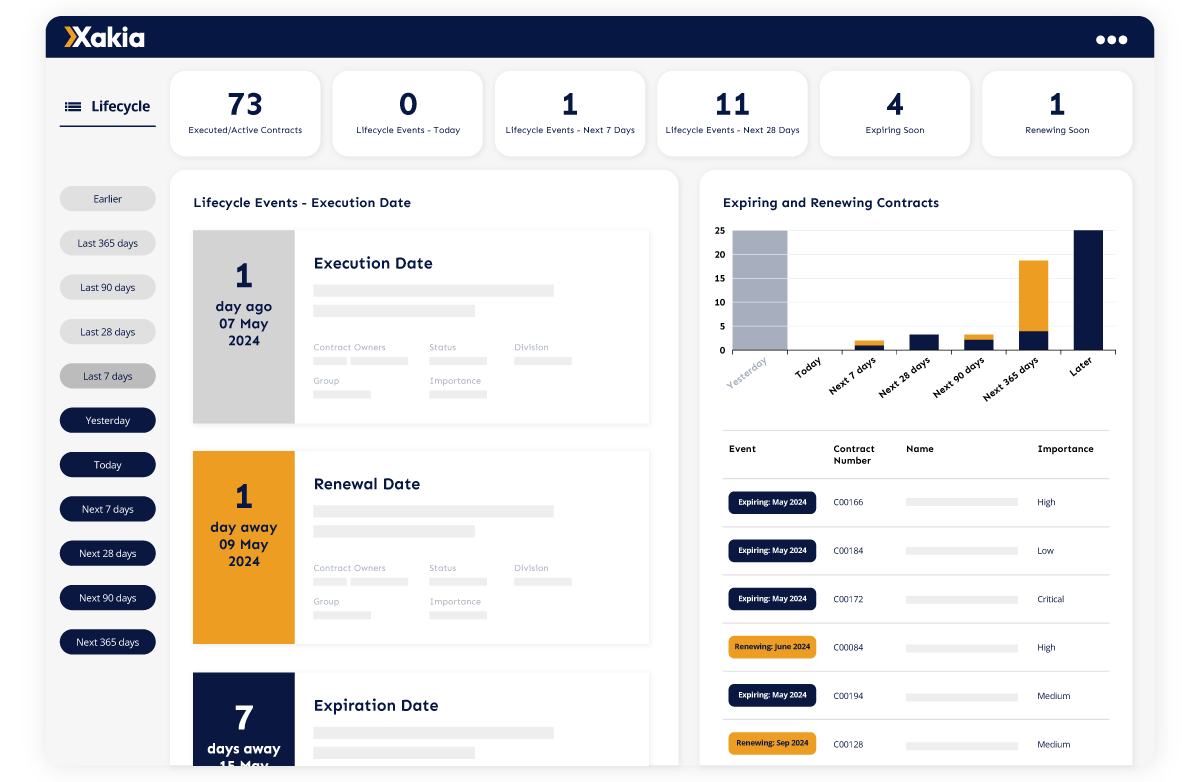Agreeing commercial, legal and risk positions in a contract can be lengthy and complex. But once the contract is agreed, signed and stored safely in your contract repository, the contract work is - in many ways - just beginning.
To make sure that a contract delivers the intended commercial benefits to your organization, it is essential to plan for success with clarity around:
- Contract owner(s)
- Contract parties
- Contract objectives and value
- Contract start and finish dates
- Key contract dates and person(s) responsible
- Related contracts

1. Contract owner/s
Who is ultimately responsible for the success, middling performance or failure of this contract? Accountability matters, to both reward great outcomes and to address poor performance of a contract. Without accountability, it becomes unclear who is responsible for specific actions and they risk not taking place at all. Identification of contract owner(s) is critical and should be captured in your contract management software.
2. Contract parties
Yes, it seems painfully obvious, but far too often it is unclear who the actual party to a contract is, and who is 'on the hook' for the delivery of goods, services, notices or other key events in a contract lifecycle. Clearly record this information on your contract lifecycle platform, and you can quickly and easily identify the parties to whom you can address any concerns.
3. Contract objections and value
Be clear: what does this contract seek to do? What value can you ascribe to it? Annual or once off? Is it an expense or capex? Revenue or capital receipt? Having this clearly set out in your contract record helps you to understand its relative importance and how it should be prioritized and/or puts any major issues in context of original goals and perceived value.
4. Contract start and finish dates
So many contracts have fuzzy start and finish dates. Not knowing when a contractual relationship begins, or when it is due to finish, can cause complexities in payment, liability and differing expectations of performance and delivery. By articulating this information clearly in a contract management software, you can immediately identify when the start and finish will be triggered (assuming that it is date-dependent and not event or performance dependent) and adjust your actions accordingly.
5. Key contract dates and person/s responsible
Contracts can have a myriad of important dates outside of the start and finish. Milestone, performance, payment and renewal dates are just a few of the key dates for management, that require clear understanding of what they are and who is responsible for ensuring that they have been observed and actioned. By setting this information out clearly in your contract lifecycle management software, noting the appropriate person(s) and setting reminders or notifications accordingly, you will be certain to observe these dates appropriately.
6. Related contracts
Contracts often do not exist in a vacuum, but reflect a relationship that is captured in a mix of other contracts and/or legal matters. Ensuring that you have clear links in your CLM software to these other legal relationships for ease of information review and full context will aid in maximizing the commercial benefits of the contract.

Capturing these six key contract information points will help you to maximize your commercial arrangements, and avoid difficult relationship negotiations after they happen. No surprises and clear expectations will set you well on the path to a better contract lifecycle management system.
Simple, powerful and affordable contract management software
Step one for contract lifecycle management is a clear, simple contract repository that addresses your primary risks. You do not need to immediately utilize every feature available, or make it a large expensive exercise, but you do need to ensure that your contracts are stored centrally, allow you to track and search key information and understand your obligations quickly.
If you want to learn more about Xakia's simple, powerful and affordable contract lifecycle management, join a demo today.
Remember: Xakia Contracts is "free-for-five". More information can be found here.
